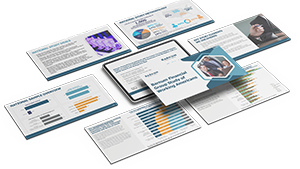
Have you ever wondered how you would manage if you suddenly fell ill or were in a debilitating accident? What would you do if you’re unable to earn a living or financially take care of yourself and your loved ones?
According to the Centers for Disease Control and Prevention, Disability and Health Data System, in 2022, 28.7% of adults reported having one functional disability. In 2024, only 22.7% of people with disabilities are in active employment compared to 65.5% of people without disabilities, increasing their exposure to financial hardships.
Disability insurance (DI) provides a safety net, enabling you to meet your financial obligations as you recuperate or forebear with disability. It’s an insurance policy that supplements between 50% and 80% of your income when you cannot work or earn because of disability.
What to Consider When Choosing a DI Plan
Benefit Amount
The insurance benefit from a DI plan is 60% to 70% of income earned 5 to 18 months before your first claim. Most DI insurers cover up to 60% of the insured income. It’s crucial to consider your ongoing expenses and desired lifestyle after a disability when choosing a benefit amount. Consider your debts, dependents, benefit duration, renewability provision, elimination period, and future increase to ensure your finances meet all your developing financial obligations after disability.
Elimination Period
The period between insurance issuance and benefit claim after illness or injury is the elimination period. Insurers use this period to ascertain if you meet the benefit criteria. You’re liable for your medical expenses and lost income during this duration.
It typically occurs between 30, 60, 90, or 365 days. The shorter the duration, the higher the premium cost. A short duration means the insurer starts paying benefits sooner, translating to increased risks for them as claims get shelled faster. Consider your financial situation and risk tolerance. A long elimination period is beneficial if you have an emergency fund or are comfortable taking on risks.
Occupation Type
Disability coverage language varies between insurers. Some insurance companies provide an “own occupation” plan, which defines total disability as a condition preventing the insured from performing their duties in their regular job, even though they can seek another type of employment. On the other hand, some insurers provide “any occupation” coverage, which defines total disability as inability to work.
Own-occupation DI is generally more expensive but offers better protection, especially for specialized professions. For instance, a surgeon can become disabled if they develop tremors, making it impossible to perform operations. The own-occupation policy provision does not disqualify them when they can still work in diagnostic medicine. However, the any-occupation coverage disqualifies them if they can still earn a living by performing any task in their occupation.
Your occupation determines the type of plan you get. Construction workers may need an own-occupation coverage because of the risks involved in their line of work. Any-occupation insurance policy is perfect for employees in specialized fields involving education, training, and experience.
Future Earning Potential
You may also want to consider a DI with a future purchase option rider, especially if you’re young with a rising earning potential or in a fast-growing field. Increasing your benefits adds a layer of protection to your finances, securing your future according to your rising income.
Additional Considerations
Other factors to consider when choosing a DI include cost-of-living adjustments. Inflation can reduce the value of your benefits. Therefore, choosing a policy with provisions for future adjustments is essential. You can also consider residual benefits riders to supplement a portion of your income in case of partial disability significantly reducing your income.
Shopping for Disability Insurance
Due diligence is essential when looking for DI. Aside from personal considerations, get quotes from multiple insurers to compare plans and pricing. Work with a financial advisor or insurance broker to understand the fine print for every potential DI and personalized guidance resonating with your present and future financial obligations and objectives.
Get The Appropriate DI Plan Today
Choosing the right DI plan requires research and financial insights. Understand your current and future financial obligations, DI prerequisites, and how your profession affects your benefits to choose a policy suitable for your conditions. It’s also crucial to compare plans to get cost-effective coverage. DI is an effective financial safety net in case of disability. Talk with a financial professional at Barnum Financial Group for tailored guidance today.



